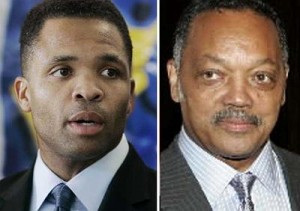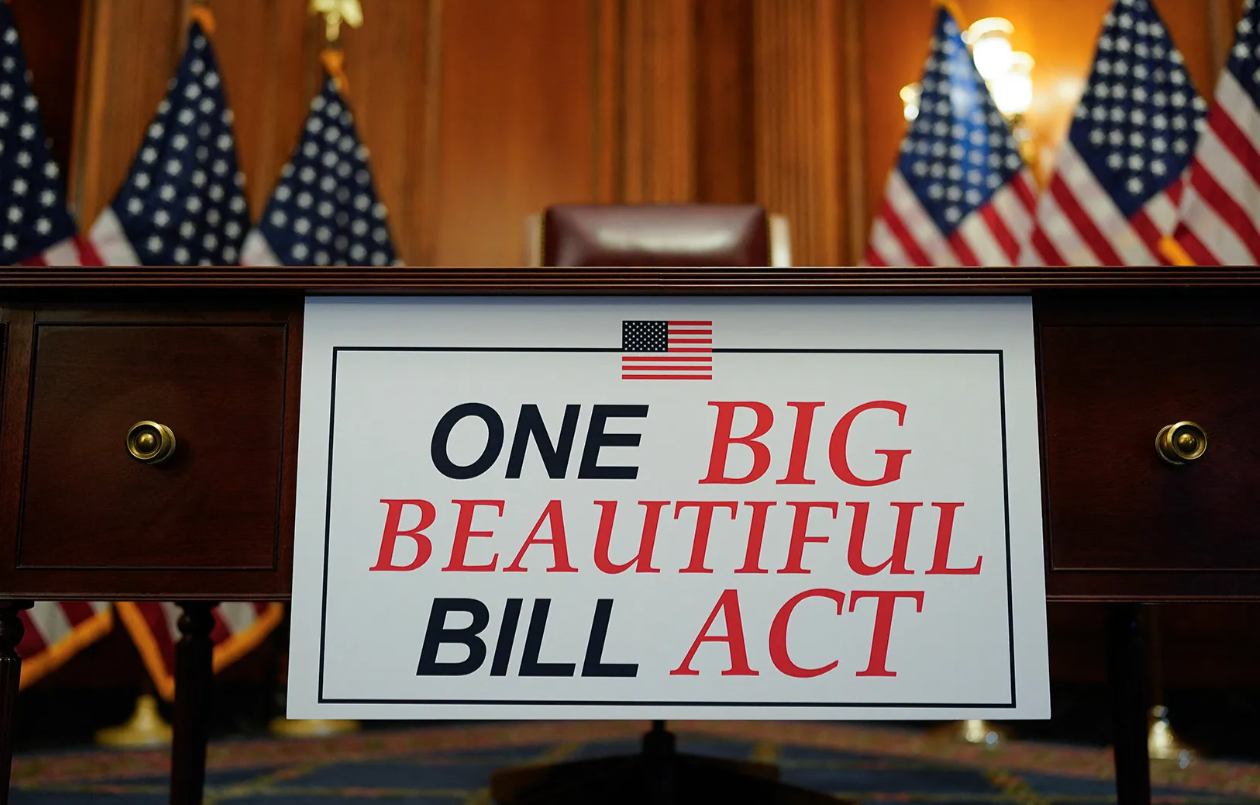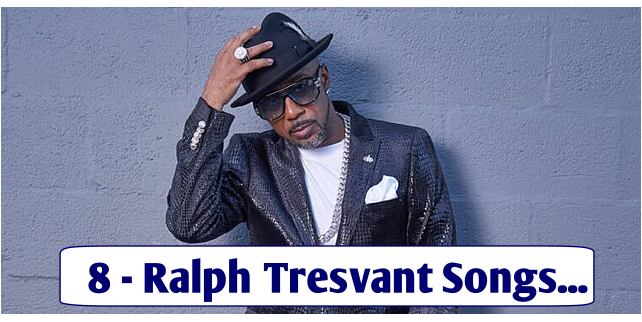(ThyBlackMan.com) In December, 2008 a stern faced Reverend Jesse Jackson looked directly into a news camera and bluntly told the nation that he was not “an emissary” in the alleged scheme by his son, Illinois congressman Jesse Jackson Jr. to shell out $1 million in bribe money to disgraced and indicted Illinois Governor Rod Blagojevich to appoint Jackson Jr. to the vacated senate seat held by then President-elect Obama. Jackson Sr. wanted the record clear that he was not a target in the investigation.
But Jackson then in a trademark Jackson quip quickly added that “Politics is a contact sport. Only those on the sidelines have clean uniforms.” Jackson had good reason to be indignant at the very thought that anyone would impugn his name and reputation. For more than four decades since that fateful day in April, 1968 when Jackson cradled the dying Martin Luther King, Jr. in his arms on the balcony of the Lorraine Motel in Memphis he has been the media and black America’s go to guy on race and activism.
A Jackson quip or sound-bite was always instant, sometimes, headline copy. Jackson upped the ante with his two presidential campaigns in 1984 and 1988. The campaigns marked him as the Democratic Party’s go to guy to rev up black voters. A legion of black candidates piggy backed on Jackson’s energizing campaigns and big voter turnouts to bag offices.
Love him or hate him, Jackson’s name was magic. But even in the zenith years, there were signs that Jackson was a double-edged weapon. The right wing used him relentlessly used him as the punching bag branding him a  race hustler. Meanwhile some blacks quietly grumbled that Jesse was an opportunist and media hog. Jesse hit back at the critics, “I play the role of a catalyst. If I bring inspiration and direction. It is the job of the people who work there to develop actual programs.”
race hustler. Meanwhile some blacks quietly grumbled that Jesse was an opportunist and media hog. Jesse hit back at the critics, “I play the role of a catalyst. If I bring inspiration and direction. It is the job of the people who work there to develop actual programs.”
The revelation of a long term illicit affair, an out of wedlock birth, threatened paternity suits and allegations that Jackson amassed a personal fortune by shaking down corporations raised more questions about his role as civil rights leader. But Jackson’s defenders shrugged off the claims out of hand. “These are idle charges. What does he do with the money? Lots of things,” said Ron Walters, director of the African-American Leadership Institute at the University of Maryland, “This goes all the way back to the civil rights movement — it’s an exchange we are talking about. You invest in our community and we will continue to see you as a partner.
The election of George W. Bush, and a new crop of young black political leaders and pundits, and black conservative media attack dogs could not be easily dismissed. As a result Jackson’s role was diminished. Though he did not exactly fade away into early retirement, he was no longer the only black personality who was sought out and routinely quoted.
One of the emerging new black voices was Barack Obama. His ascendancy as a political phenomenon represented a threat to the old-guard generation of black leaders like Jackson who made the jump to politics from their work as preachers or as civil rights activists. Jackson took much heat for his initial tepid endorsement of Obama.
The suspicion was that Jackson was plainly jealous if not flatly hostile to Obama. In an infamous off microphone crack on a Fox News interview in July 2008, Jackson said, “See, Barack [has] been, um, talking down to black people on this faith-based…I want to cut his nuts off.” The backlash was swift and harsh. A chagrined Jackson quickly back pedaled and swore no malice to Obama, “I feel very distressed because I’m supportive of this campaign and with the senator, what he has done and is doing.”
The play-for-senate-seat pay scandal involving Jackson Jr. is another matter. It was a test of whether Jackson could successfully fend off accusations of corruption and wrongdoing. The charges came right in the midst of swirling talk that he will make a run for Chicago mayor. With his expected opponent being White House chief of staff Rahm Emmanuel, who presumably has the backing of the White House, and the Democratic Party, and the ability to raise millions, it would be an uphill climb, even without the taint of scandal, for Jackson Jr.. But the taint deepened for him with the fresh allegation that he paid for a social companion to travel with him to an event in Washington DC. Jackson scrambled fast and did the requisite damage control, pleading “this is a private matter between my wife and my family. I ask that you respect our privacy.”
The charges against him are just that, charges. But as the elder Jackson found out following the love child revelations, apologies and denials won’t erase the damage. Jackson’s critics have had a field day with the travails of father and son. They see it final proof that the formidable Jackson name and influence is now a mere shadow of what it once was.
Still, it’s premature to write the personal and political epitaph for Jackson Sr. He can still command air time. His public defense of LeBron James against attacks by Cleveland Cavaliers owner Dan Gilbert and the march he led with UAW President Bob King in August of thousands in Detroit for Jobs and Justice showed that. And Jackson Jr. has not been charged let alone convicted of any actual wrongdoing. In a radio interview, he defiantly challenged prosecutors to “bring it on.”
Jackson may have slipped from the pinnacle of black leadership he once held. But the Jackson name is still good enough to get at least some tongues wagging. And that has value.
Written By Earl Ofari Hutchinson

















Leave a Reply